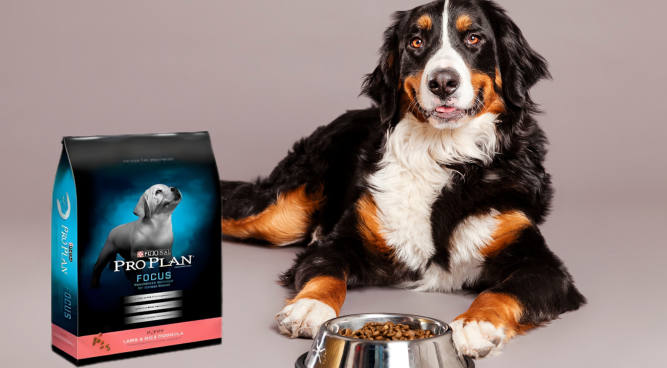Difference Between Puppy and Adult Dog Food: Making the Right Choice for Your Canine Companion

Table of Contents
Introduction
Bringing a new puppy into your home is an exciting time, but it also comes with responsibilities, including providing proper nutrition. Puppies are in a critical growth phase, requiring specific nutrients to support their developing bodies. On the other hand, Difference Between Puppy and Adult Dog Food, adult dogs have completed their growth and need a diet that maintains their health and vitality.
Understanding the Nutritional Needs
Understanding the Difference Between Puppy and Adult Dog Food, Puppies have higher energy requirements compared to adult dogs due to their rapid growth and playful nature. They need an eating regimen rich in first-rate proteins to guide muscle improvement and amino acids for the usual increase. Essential fatty acids like Omega-three and Omega-6 are crucial for mind and vision improvement.
Puppies: Building the Foundation
Puppies are like sponges, soaking up nutrients to support their rapid increase and improvement. Their nutritional necessities are awesome from those of personal puppies. Here’s a Difference Between Puppy and Adult Dog Food breakdown of what makes Doggy Food essential:
1. Protein Requirements
Puppies require a higher protein intake to support muscle and tissue development. Quality protein sources such as lean meats, fish, and eggs are imperative for their growth.
2. Fat for Energy
Healthy fats are crucial for providing the energy needed to fuel a puppy’s active lifestyle. Omega-3 fatty acids, found in fish oils, contribute to brain development and a shiny coat.
3. Essential Vitamins and Minerals
Pup food ought to be plentiful in nutrients and minerals like calcium, phosphorus, and vitamin D, as these are significant for solid bones and teeth.
4. Controlled Calcium Levels
Excessive calcium intake can lead to orthopedic issues in large-breed puppies. Quality puppy food ensures controlled calcium levels to mitigate these risks.
Nutritional Needs of Adult Dogs
Adult dogs, having completed their growth, require a balanced diet to maintain their ideal weight and overall health. The focus shifts to maintaining lean muscle mass, joint health, and preventing obesity. Adequate protein levels are necessary to support these functions.
Protein and Amino Acids
Puppy food contains higher protein levels to fuel growth. Look for protein sources like chicken, beef, and fish. For adult dogs, protein helps repair tissues and maintain muscle mass. The protein content in adult dog food is slightly lower than in puppy food this is the reason why you need to know the Difference Between Puppy and Adult Dog Food like Purina Pro Plan Puppy Lamb and Rice.

Fat Content
Difference Between Puppy and Adult Dog Food, Puppy food often has a higher fat content to provide the energy needed for growth. Healthy fats are essential for brain development. In adult dog food, fat content is moderated to prevent weight gain.
Calcium and Phosphorus
Puppies need more calcium and phosphorus for developing strong bones and teeth. Adult dogs need these minerals as well, but excess amounts can lead to skeletal issues. The balance is crucial.
Essential Vitamins and Minerals
Both puppies and personal dogs require vitamins and minerals for various physical capabilities. These consist of nutrients A, D, and E, as well as minerals like zinc and selenium. Puppy food usually carries higher ranges of these nutrients.
Calories and Portion Control
Puppies want greater energy in step with pounds of body weight than adult dogs. However, component control is vital to keep away from overfeeding, which may lead to obesity.
Special Dietary Considerations
Certain breeds may have unique nutritional requirements. Large breed puppies, for example, need controlled calcium intake to prevent skeletal issues. Consult your veterinarian for breed-specific recommendations.
Adult Dogs: Maintenance Mode
Adult dogs have special nutritional needs as they’re no longer developing at a speedy pace. Here’s what you should recall:

1. Balanced Nutrition
Adult dog food provides a balanced blend of nutrients to maintain optimal health. This includes moderate protein levels, fats for energy, and essential vitamins and minerals.
2. Weight Management
Adult dogs are more susceptible to weight gain, so portion control and maintaining an ideal weight are essential to prevent obesity-related health issues.
3. Dental Health
Some adult dog foods are formulated to promote dental health by reducing plaque and tartar buildup.
Choosing the Right Food
Choose great canine meals with actual meat as the principal aspect. Look for merchandise that meets AAFCO (Association of American Feed Control Officials) standards as in Difference Between Puppy and Adult Dog Food.
Reading Dog Food Labels
Understanding dog food labels is essential. Ingredients are listed by weight, so the first few ingredients should be protein sources.
Homemade vs. Commercial Dog Food
While homemade dog food allows more control over ingredients, it can be challenging to create a balanced diet. Commercial dog food is formulated to meet various nutritional needs.
Transitioning from Puppy to Adult Food
As your doggy grows, transitioning to grownup meals is a tremendous milestone. It’s critical to make this variation step by step to save you digestive dissatisfaction. Here’s a step-via-step manual:
1. Start by blending a small number of personal meals into your doggy’s modern weight loss program.
2. Gradually boom the share of personal meals over seven-10 days.
3. Monitor your canine’s stool and standard health all through the transition.
Summarize: Difference Between Puppy and Adult Dog Food
In summary, imparting appropriate nutrition is vital for the fitness and properly-being of each puppy and grown-up puppy. Understanding the Difference Between Puppy and Adult Dog Food and their dietary necessities facilitates you’re making informed choices about their diets, making sure they lead healthy and happy lives.

FAQs: Difference Between Puppy and Adult Dog Food
Q1: When have I transitioned my puppy to adult dog food?
A: The transition usually happens around three hundred and sixty-five days of age, but seek advice from your vet for customized advice.
Q2: Can I feed my person canine puppy food?Difference Between Puppy and Adult Dog Food?
A: It’s no longer advocated as pup meals have distinctive nutrient ratios that may not suit a grownup canine’s wishes.
Q3: How do I understand if the canine meals meet AAFCO standards?
A: Look for a declaration on the packaging indicating that the food is formulated to fulfill AAFCO nutritional stages.
Table: Difference Between Puppy and Adult Dog Food
| Aspect(Difference Between Puppy and Adult Dog Food) | Puppy Food | Adult Dog Food |
| Protein Content | Higher protein content to support growth | Moderate protein content |
| Fat Content | Higher fat content for energy and growth | Moderate fat content |
| Calcium and Phosphorus Levels | Elevated levels for bone development | Controlled levels to prevent issues |
| Vitamins and Minerals | Rich in essential nutrients for development | Balanced blend for maintenance |
| Transition Period | Elevated levels of bone development | Straightforward switch from puppy food |
| Dental Health | Not typically focused on dental care | Some formulations aid oral hygiene |
| Weight Management | Less concern as puppies have high activity | Important to prevent obesity |






